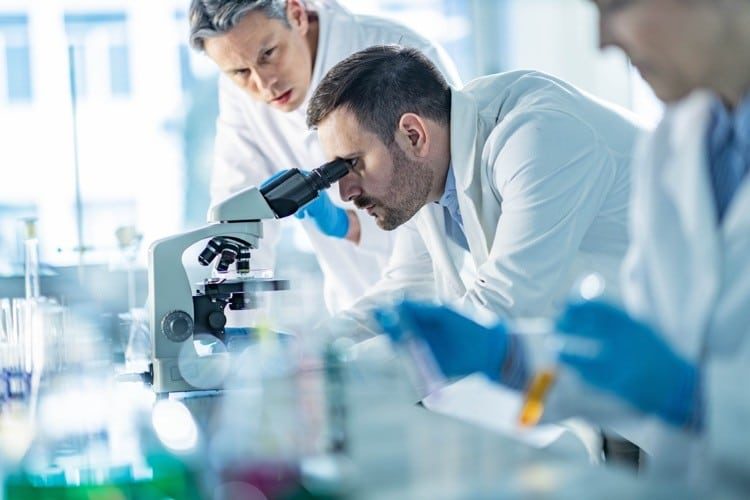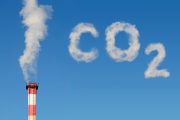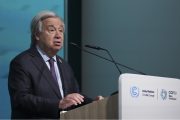
North Korean defector Yeonmi Park recently said that America has, unbelievably, become even crazier than her native country. A reality evidencing this is that factual articles about real stories too often now sound like satire. Thus is the case with the subject here: a New York University “bioethicist” who has a solution to climate change, which he and his collaborators call “arguably one of the biggest problems that confront us today.”
To wit: engineer humans who are smaller, smarter, and beef-averse.
Mathew Liao, an immigrant born in Taiwan, has all the “right” credentials, having attended Princeton University and boasting a Ph.D.in philosophy from Oxford; he also holds the Arthur Zitrin Chair of Bioethics at New York University. In other words, he’s the kind of pseudo-elite to whom other pseudo-elites listen.
This is why his pronouncements matter. And perhaps this is why Fox News commentator Tucker Carlson brought his human engineering scheme to light yesterday evening.
Focusing on insanity committed in science’s name, Carlson’s segment opened discussing how it wasn’t just British zoologist Peter Daszak funding coronavirus gain-of-function research in China’s Wuhan lab — using tax dollars provided by Dr. Anthony Fauci — but also monopolistic corporation Google. Daszak and the tech leviathan then conspired to hide from the public information indicating that SARS-CoV-2 likely escaped from the lab.
Google’s complicity was essentially admitted some days ago by one David Feinberg, who heads up the company’s “Health Division.” Answering a reporter’s question, he said that the tech giant was censoring information because it didn’t want to “lead people down pathways that we would find to be not authoritative information” (Carlson video below).
Now, “authoritative” is an interesting word choice. Its first definition at Merriam-Webster is “having, marked by, or proceeding from authority.” This means something can be “authoritative” but also absolutely incorrect — as was what was espoused by Fauci and Daszak, who apparently are complicit in the COVID-19 induced deaths of millions worldwide.
Yet Liao is also authoritative; in fact, Carlson claims he’s “among the most influential bioethicists in the world.” And that’s why his comments, made years ago but largely ignored, matter.
“My view is that what we need is a really robust ethical framework … to solve big world problems” such as “climate change,” said Liao at an event called the World Science Festival (WSF) in 2016. It “turns out we can use human engineering to help us address climate change.”
Now, “anyone who uses the phrase ‘robust ethical framework’ wouldn’t know ethics if they got in the shower with them,” warned Carlson. This is because such people virtually never know much about what’s a prerequisite for understanding good ethics: morality. Beware those loath to use the term “morality” — for this is usually because they don’t believe in its reality.
But “[h]uman engineering?” stated Carlson rhetorically. “The name alone should make you pause. People aren’t bridge improvements. You can’t just add rebar, pour a few yards of concrete, and improve the human condition, much less the human soul.”
“People are living beings,” the host continued. “They’re alive. They can’t be engineered.”
But don’t tell Liao, who, with collaborators in a 2012 paper titled “Human Engineering and Climate Change,” wrote that “existing solutions such as geoengineering might be too risky … to mitigate climate change.” So we’re instead proposing “human engineering, which involves biomedical modifications of humans so that they can mitigate and/or adapt to climate change,” the scientists continued, also stating that the ethical concerns “can be addressed.”
As for Liao’s proposals, he said at the WSF that people’s consumption of meat was often due to just a “weakness of will.” “So here’s a thought…we have these [sic] intolerance,” he explained. “For example, I have milk intolerance, and there’s, some people are intolerant to crayfish. So possibly we can use human engineering to make it the case that we’re intolerant to certain kinds of meat, certain kinds of bovine proteins. …So that’s something we can do through human engineering.”
But Liao wasn’t done. He also suggested at the WSF that we could create smaller humans. “So it turns out the larger you are, think of the lifetime of greenhouse gas emissions that are required, the energy that’s required to transport larger people rather than smaller people, right?” he elaborated. “But if we are smaller just by 15cm…I did the math and that’s about mass reduction of 25%, which is huge. And 100 years ago we’re all on average smaller, exactly about 15 cm smaller, right? So think of … the lifetime greenhouse gas emissions if we had smaller children, right? So that’s something we can do” (video below).
Liao has also argued that we could engineer people to be more intelligent, as higher IQs correlate with lower fertility.
Last week I wrote about how our society is beset by “credentialed morons,” but Liao isn’t dumb. Listening to him makes clear that he’s also not a man of ill will. Yet this perhaps makes him more dangerous. We all know what the road to Hell is paved with, after all.
His ideas aren’t new, either. Using science to improve man was all the rage a century ago in the form of “eugenics,” the science of improving humanity via selective breeding. It’s now associated with the Nazis, whose embrace of it discredited it. But prior to the National Socialists’ rise (in 1933) and till World War II’s conclusion, eugenics was quite popular among American and British pseudo-elites. In fact, the scientist who coined the term “eugenics” was an Englishman, Sir Francis Galton.
And now we’re coming full circle; only, we’ve graduated beyond selective breeding since we now can directly manipulate life genetically. This history repetition was predictable, too, as it’s “what science looks like when it’s been completely decoupled from wisdom, decency and Christianity,” said Carlson.
He’s correct about faithlessness lying at this problem’s heart. Upon concluding that we’re just “cosmic accidents” — the result of godless, unguided evolution — it follows that perhaps we should facilitate that evolution. (Note here that Galton, a half-cousin of famed evolutionist Charles Darwin, acknowledged that he was building on his relative’s work.)
Consider here that people would be very unlikely to fiddle with what they view as God’s design, but they’ll be very likely to try to correct “accidents.” When not believing in God, it’s tempting to play god.
The bottom line is that we should take Liao’s ideas seriously, especially since he has scientific allies in promoting them. For the Critical Race Theory march, “transgenderism,” and so many other destructive movements began with an idea, propounded first by one person and initially dismissed as crankery. And we know what happened with them.



